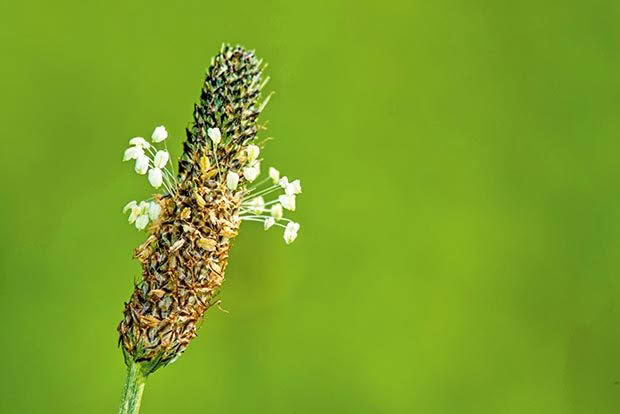Buck-horn plantain, how it improves your block.

What plantain can do for your block
Words: Nadene Hall
A Hawke’s Bay on-farm trial shows lambs fatten faster on plantain and yield better than lambs grazed solely on pasture.
Awapai Station carried out trials and then held an on-farm field day for other farmers to find out more about plantain management.
More and more farmers are turning to plantain as a popular, affordable alternative to pasture for fattening lambs and improving the condition of livestock for mating.
Many sheep and beef breeders and traders say plantain helps produce better growth rates.
Awapai farm manager Shane Tilson says he has planted 80 hectares of mixed clover and tonic plantain in the last four years and is now seeing outstanding results.
“We did a research experiment this season where we grazed half our Highlander ewe hoggets with their Primera lambs on plantain and half on grass for the last month of lactation in December. The lambs that were weaned off the plantain were a kilo heavier in carcass weight than the lambs that were grazed on pasture and the ewe hoggets weaned 1.2 kg heavier than those on pasture.
“Forty-eight percent of the lambs weaned off the plantain mob graded better off mum compared to 21% off the grass mob. It was clear the plantain-fed lambs graded better, yielded better and put on weight faster.”
Mr Tilson says the lambs on the plantain put on 350g a day on average from date of lambing to weaning, a far better lactational growth rate than they had expected.
“The plantain is very palatable and seems to digest well. I find the lambs graze the whole paddock very evenly. Having plantain meant that during last year’s drought we were able to grow all our rams out to meet contractual demands from farmers. Without plantain we would have been very challenged.”
Mr Tilson says plantain enables them to get their replacement ewe lambs to a mature body weight earlier.
“We can mate our hoggets earlier so we can get the genetic gains earlier without compromising growth rates. We just weaned our hogget replacements in January. They came off the plantain at 66.5kg. They had put on 4.5kg while also rearing a lamb, so we were thrilled with their performance.”
Mr Tilson says to reap the benefits of plantain it must be managed well.
“You really have to keep on top of it. We graze it when the height of the plantain is the height of a stubby beer bottle and we take the stock out when it’s the height of a stubby beer bottle lying on its side. You can’t just stick your stock in there and forget about them.”
Opepe Trust farm manager Ryan Mason has planted over 300ha of Tonic plantain on his Central Plateau farm and says it’s been one of the best decisions he has ever made.
“We have light soil and poor fertility as well as challenging climatic conditions so we need a crop that can handle our harsh environment. We need something that can give us growth all year around and plantain provides the answer.”
Opepe Trust grazes dairy heifers and calves on the plantain and also finishes its lambs on it. The farm produces 10,500 lambs and sells some fat and some store.
“Plantain has enabled us to lamb earlier and get better results. We drafted 50% of our lambs off mum fat this year which is a record for Opepe Trust, given we farm in such a tough climate.”
The property used to have 100% brown top grass but 10% is now plantain and Mr Mason says he is looking to growing more.
“Plantain is a good year-round plant that is low cost and is easy to establish in a low fertile environment. We have peace of mind knowing we have the feed available going into the winter and during droughts. This enables us to focus on good genetics and management.”
Love this story? Subscribe now!
 This article first appeared in NZ Lifestyle Block Magazine.
This article first appeared in NZ Lifestyle Block Magazine.
